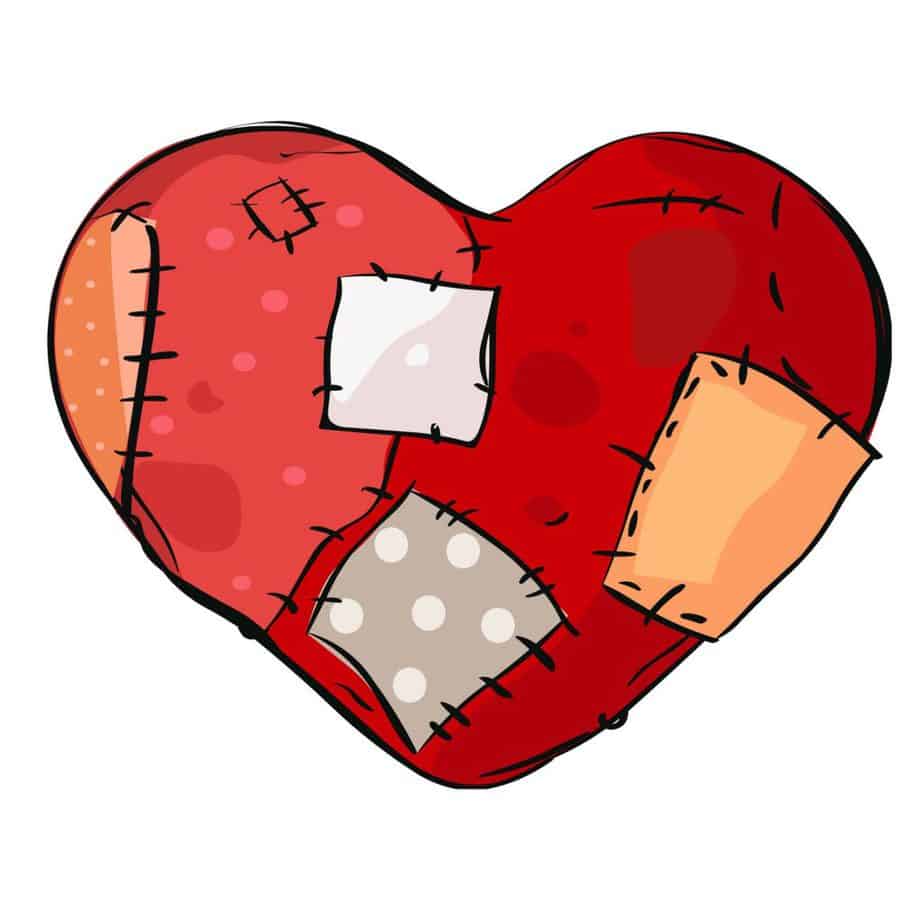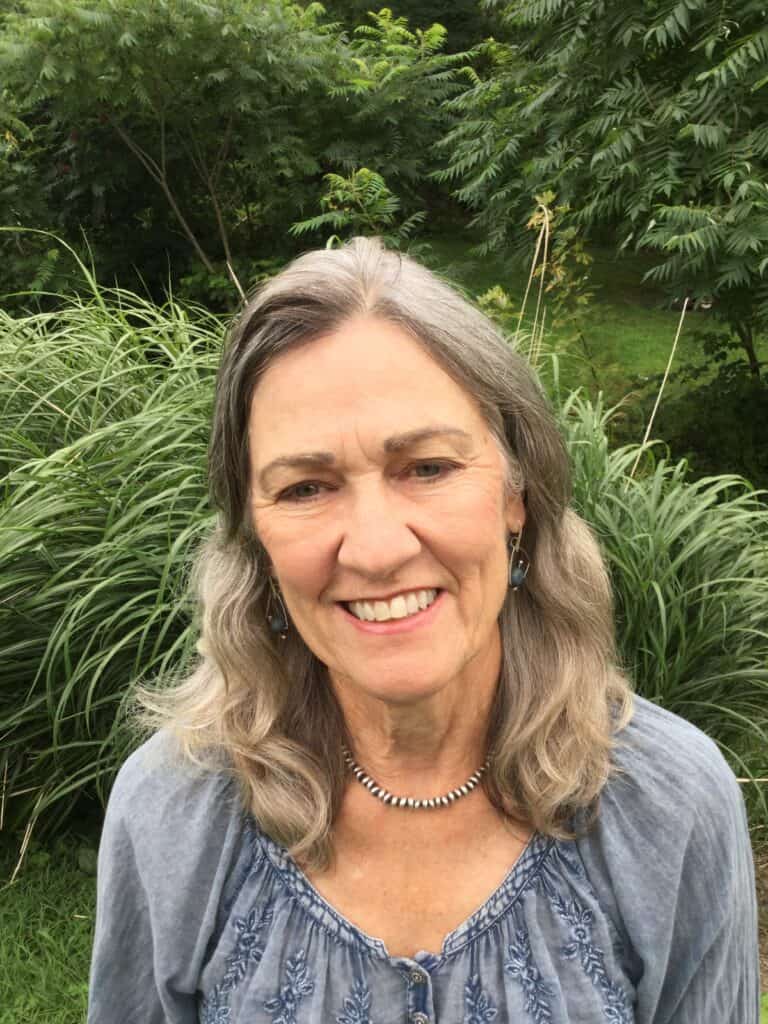A Roadmap of Scars
– Nonfiction by Elisabeth Crago –

1976. I am young. Nothing really bad has happened in my life yet, or at least not shake-the-foundation-of-everything bad. I am in labor and this time it’s easy. Contractions wake me at 10:30 p.m. and three hours later, Sam is born. Everything seems perfect—a boy the same length as his two-year-old brother, with the same head and chest circumferences. Apgar 9.
“This must be my standard product,” I say to the nurse as she places the slippery infant on my chest. Alert and quiet after his first full-throated cries, Sam seems to be studying the world around him. All is well.
We’re in a small hospital in the Vermont town where my husband, John, is a teacher. He’s taught many of the staff’s kids, so when nurses come in to see our new baby, I think they’re making social visits. But when the director of nursing knocks at my door the second morning, her knitted brow suggests otherwise. As Sam’s first day edges into his second, the elation of birth begins to ebb away.
Sam is not nursing. He also isn’t peeing and hasn’t passed meconium, the sticky substance of early bowel function. Content to lie beside me or in his bassinet, he does not cry. Through the window my eyes trace the skeletal frames of leafless trees silhouetted against the gray November skies. A strange calm settles over us.
How long can a baby go without drinking? Cradling the baby in the crook of my arm, I don’t want to move, don’t want to disturb him. Then I want to move so he’ll stir and I’ll know he is OK. I push down my worry but, with each hour that passes, my anxiety mounts.
Forty-eight hours. Still not eating. My milk is coming in, but Sam’s having none of it. Finally, the hospital pediatrician marches into my room, two nurses and the director of nursing close behind. Confused by the fuss, I’m grateful for the attention. At the doctor’s command, I put Sam to the breast. His muddy blue eyes lock on mine. Then he turns away without suckling as milk trickles down his cheek.
“Let’s give him some water,” the doctor takes Sam from my arms and forces the bottle’s nipple into his mouth. He swallows, then clamps his lips tight. Seconds later, he throws up. I’m too stunned and frightened to speak.
The doctor concedes that something is not right. He says we need to take Sam to the nearest neonatal intensive care unit, some fifty miles away. This not being an emergency to him, he refuses to call an ambulance. Our insurance will not cover non-emergent transport and John and I strain at the cost: $250—money we do not have.
“I’ll have a nurse go with you.” The director of nursing turns to John. “You shouldn’t take the baby in the car alone.”
I don’t want to let them go, but I’m too weary to make the trip. I worry about two-year-old Matt at home. While John gets the car, the nurse returns with her coat. Milk leaking from my breasts, I hand my swaddled baby to this stranger and watch through the window as she settles herself next to his car seat. As they drive away, I realize I don’t even know her name.
* * * *
Sam’s third day is my twenty-sixth birthday. And Thanksgiving. Poking around in the refrigerator, my sister, Victoria, calls out to me, “Did you remember to get the cornmeal?”
“It’s in the pantry cupboard,” I answer from the bedroom, putting the breast pump down. We planned our Thanksgiving feast weeks ago, before I went into labor, before she drove from Philadelphia to take care of Matt. Now, striving for a normalcy we no longer have, we keep to our original plan. Easier, in a way.
I hear Matt singing in the living room. For a moment, I forget about the baby in the neo-natal unit. Then, I startle as I remember the nurse said she’d call this morning, but the phone hasn’t yet rung.
As Victoria mixes the cornbread for our turkey stuffing, I bundle Matt into his snowsuit. Through the open front door, I inhale a blast of cold air, crisp with the scent of snow. Matt toddles across the frozen yard, eager to help his father bring in firewood. John cradles a well-split log into his arms. The stairs too tall for Matt to make in one step, he climbs deliberately, one foot then the other, to deposit his load by the door. Over and over he makes this trip, preparing himself for what I hope will be a big nap.
I jump at the thud of wood hitting deck just as the phone rings. By now the house is suffused with the aroma of cornbread. The nurse’s voice is soft and unrushed: “Can you and your husband get on the phone together?”
With me in the bedroom and John on the kitchen extension, we hear her news: We don’t really know what’s wrong… can’t wait… bowel’s obstructed and he’s vomiting…surgery now.
I strain to see John’s face, but he’s got his back to me. Separately, then in unison, we answer, “Yes, yes. Of course.”
* * *
Six hours later, the phone rings again.
“We’re done,” the resident tells us. “We’re not sure what caused the obstruction, but Sam handled the surgery well.”
The receiver is a dead weight in my hand.
“Dr. Carl had to give him an ileostomyso that his bowel can rest,”the voice on the phone continues.
I ask what that means, try to focus on what the resident is saying, then try to imagine our son’s brand-new skin cut and sutured, small bowel poking through his tiny belly. I don’t let myself picture it.
“Why don’t you come tomorrow and meet with Dr. Frank?” the resident continues. “She’s the head of the NICU and she’ll answer all your questions. If the baby’s stable, you can hold him.”
Victoria finishes preparing our Thanksgiving meal. Except for Matt, who can’t get enough stuffing, we all push bits of food around on our plates before giving up. As I lift Matt into his bath, the scent of turkey and sage clings to his hair. John reads his bedtime story and tucks him in, then joins Victoria and me by the wood stove.
“What do you call what they did again?” Victoria asks.
“They said his bowel was all distended. Swollen or blown-up or something,” John begins.
“An ileostomy,” I turn to Victoria. “They brought the small intestine through the skin of his belly so his bowel can rest.”
John and I struggle to explain what we don’t really understand. Our parents are waiting, so we call, each of us filling in details the other has forgotten. All of us focus on the fact this surgery is over. Eventually, John and I crawl into bed. Our bodies entwined, we fall into a fitful sleep. In the morning, we point the car north, to see Sam and meet his doctors.
“Sounds like he had a decent night,” I repeat what the nurse told us in our morning call, how Sam slept and seemed comfortable. The miles tick slowly by, the frozen landscape a blur.
“Thank God Victoria’s around to stay with Matt,” John takes one hand off the wheel and reaches for mine. Turning off the interstate, we cross the Connecticut River, its steely gray water reflecting a sunless sky.
A hospital volunteer escorts us to the family waiting room outside the NICU. There, alone with Dr. Frank, we try to digest her words as she describes the possible causes of Sam’s obstructed bowel. She can’t give us a firm diagnosis.
“The next three days will tell a lot,” she says. “We need to stabilize him and make sure he’s getting some nutrition.” I try to catch her words but I feel myself spinning.
“Let’s go see your baby,” Dr. Frank puts her hand on my arm before turning toward the door. “I’ll be right back.”
A nurse opens the blind on the window separating us from the NICU. Through the glass we see our baby boy, barely recognizable under bandages and tubes. I feel John’s arm around me, but his touch cannot reach the gnawing pit in my stomach, this belly that three days ago was full of another life. Neither one of us speaks.
Dr. Frank motions to us, then meets us at the door, holding out two yellow gowns. “Put these on, then wash your hands at the sink over here. Sam’s awake.”
John and I take our places on either side of Sam’s plastic box bed. Intravenous pumps and other equipment we don’t recognize dwarf the three neighboring bassinets. Deliberately looking away from the other sick babies, I focus on ours. He’s propped in an infant seat, his tiny body slouched to one side. He stares at me. I wonder if his eyes will clear to match the blue of his brother’s.
“Talk to him,” the nurse says. “He’ll recognize your voices.”
We whisper to him, our reassurances drowned out by a beeping alarm. Each of us places a finger in Sam’s hands, his tight grip the only touch possible.
* * * *
On Monday, John returns to work and Victoria to Philadelphia. Both sets of grandparents postpone planned visits until after Sam is discharged. Each morning a nurse or resident calls with a report; in the evening we phone our parents, repeating what we remember. A neighbor offers to sit with Matt, so I make the drive to the hospital three times in three weeks. John and I set our voices and faces for each other, for Matt, for ourselves. We don’t speak of our fears.
The doctors say Sam will feed soon so I pour my energy into making milk. Every four hours during the day and once at night I pump, freezing the milk in tiny plastic bags. I’m proud I make a quart a day with only a small hand pump. What Sam can’t use will go to the hospital milk bank for other babies, babies whose mothers can’t nurse or who live far away. I have a mission.
Eight days before Christmas, we bring Sam home. Except for where they shaved his head to place IVs in his tiny scalp veins, he looks normal and healthy. He behaves like any newborn and I want to believe he’s a happy baby. The roadmap of scars lies hidden beneath his onesies.
The grandparents all visit, each wanting a recount of the surgery and to see his belly. While I tend the baby, they decorate the house for the holidays and stock the freezer with premade dinners. John’s mother takes a picture of a yawning Sam, dressed in a red Santa sleeper, to add to the gallery of similar photos of each of her five other grandchildren. We are all intent on making normal, though we have no idea what that really means. Everyone tries to explain what went wrong and how this happened. With nothing and no one to blame, we all finally stop trying. No one speaks of the emotional toll we are paying.
* * *
I only remember crying once that year. When Sam is about four months old, my parents visit again. Bright sun streams through the living room windows as my mother and I bundle the boys for a walk. Folding my baby into the white fleecy bunting that makes him look even more lamblike and adorable than usual, I start to cry. I know my mother sees my tears, but she walks away. Her silence a shroud, she doesn’t know what to say and I don’t know what to ask for. Even if I were to find a way to name it, she wouldn’t know what or how to give. With Sam’s face snuggled against my chest, I head outdoors, my breath catching in the sharp inhale of frigid air. Tears freeze to my cheeks.
We all internalize the surgeon’s words: this is a mechanical problem, fixable in an otherwise healthy baby. And, in fact, this is true. In my interior catalog of miseries, Sam’s problems pale against spina bifida or brain damage. I believe we will find a path to normal again and, one day, this will all be over.
Sam gives us several “overs” his first year: the emergency surgery that saves his life that Thanksgiving day; two minor surgeries (minor, but requiring general anesthesia) at two months and five months to confirm a definitive diagnosis; the “big” surgery at ten months to repair the intestinal defect; and then one last operation three weeks later to reverse the ileostomy. Each time, John and I gear up, preparing ourselves and doing our best to prepare Matt. When we tuck Sam in his crib after that final surgery, we’re sure we’ve made it to over.
* * * *
Some say the olfactory sense is our strongest, a primitive hangover from a time when survival depended on the recognition of danger, pheromones, and food. I don’t have a particularly acute sense of smell, but there are odors that transport me down memory’s tunnel. Sixty-some years later, I can still call up a whiff of wool and pipe tobacco, the scent that permeated the sweaters I snuck from my father’s dresser when he was away on business trips. A sniff of lilac sends me to the backyard of my childhood home. And the slightly pungent, earthy sweetness of the tincture of benzoin I used in Sam’s ostomy care still sticks to my nostrils the way its liquid sticks to skin.
So, am I surprised that Thanksgiving, with its house-filling aromas of turkey and pie, is my least favorite holiday? If it weren’t for the preferences of others, I could happily live without ever eating turkey. As our children grow up, my sister and I meet in her kitchen and spend hours preparing elaborate Thanksgiving meals. I love the planning and the process, but my appetite vanishes as the house fills with scents carrying memories I’d prefer not to revisit.
* * * *
6 a.m., January 4, 2017, forty years after Sam’s surgeries. Pouring my first cup of coffee, I notice several texts on my phone, all from Sam’s partner, Nikki. Call me as soon as you can, reads the latest, sent at 5:18. Her voice hushed when she answers my call, she tells me Sam is in the hospital with an acute intestinal obstruction. He’s OK, she assures me, but the doctors are waiting to see if a naso-gastric tube clears the obstruction or if they’ll have to operate. She tells me what I already know—the obstruction is most likely caused by adhesions around his bowel, scar tissue from his infant surgeries.
* * *
Putting the phone down, I sit still for several minutes, thinking about how when Sam was three, I went to nursing school. Though there were practical factors pushing me to work, mostly I wanted to support families in times of crisis, to help them bear what we’d born largely alone. To repay our debt.
I wanted to be like Nina, our pediatrician’s nurse practitioner. She was the only person I remember asking how we were doing, how we were bearing up. Once, during Sam’s six-week check-up, Nina’s gentle questioning allowed me to touch how hard it was, how scared I felt. But that moment passed quickly as Matt chattered to her. Though we spoke few words, I knew Nina understood. She and Maggie, Sam’s primary nurse during his final hospitalization, offered moments of compassion I couldn’t admit I craved.
Walking into Pittsburgh’s West Penn Hospital a few hours after Nikki’s text, I’m directed to follow the red arrows to the East Elevators. Like so many of its vintage, this hospital grew incrementally, a series of separate buildings now linked by a maze of interconnected hallways. The red path leads me through the hall of honor. Small, engraved plaques acknowledge philanthropic donors on one wall, while the other is lined with historical markers from the old nursing school and tributes to notable physicians.
For twenty years I worked in hospitals like this one. I know the linoleum floors, the push to activate automatic door openers, the corner where the morgue is likely to be hidden. I know the way visitors steal glances at each other as they wait for the too-slow elevators. But mostly I know the smells—the stale air with its undertones of antiseptic and bad cafeteria food.
The hallway on the ninth floor is dim though there’s bright sun outside. As I exit the elevator, a sign on the wall reads: Hush: healing in progress. My leather soles echo through the corridor and I wish I’d thought to wear different shoes. Room 916 is just past the empty nurses’ station, the door barely ajar. Nikki waves to me from the recliner by the window, then presses finger to lip. The periodic whoosh of a suction machine breathes into our silence.
Sam’s 41-year-old lanky frame fills the bed, all 6’3” of him. A two-day beard shadows his jaw. A Y of tape between nostril and upper lip holds the naso-gastric tube in place but is already peeling back. Though he appears to be asleep, his brow is furrowed and he grimaces when he swallows. The tube is rubbing the back of his throat, I think, as my own gag reflex wakens.
* * *
In the dimmed fluorescent light, I’m back in 1976. Gowned and scrubbed, a nurse in blue OR garb is leading me through a swinging door. Bassinets line the perimeter of the room; blinds are drawn across the window, shutting it off from the hallway. This is not a nursery for passers-by to view. Propped so he’s semi-sitting, infant Sam is awake, his gaze steady. A tiny tube runs from his nose to a canister below the crib. His little tufts of hair have been shaved from his temples, where a loop of tinier tubing is taped to his scalp, the thread-like needle disappearing into miniscule veins. His belly is covered in bandages.
“Do you want to hold him?” the nurse asks, positioning a rocking chair alongside the bassinet. “Why don’t you try feeding him?” I wonder how this will be possible, my arms stiff as she places Sam across my lap.
I let out a long sigh as I settle into the rocker. My baby nestles into me, cradled by the crook of my elbow. I stroke his cheek with my finger, and he starts to root. When I offer him my breast, he latches on, suckling for the first time since he was born. Closing my eyes, I imagine us at home, rocking by the wood fire as Matt plays by my feet.
* * *
When Sam wakes up, I can’t help but see the both of him—the baby in the bassinet and the grown man. I wonder what he remembers. Once, after he rushed his own unconscious daughter to the hospital during a febrile seizure, I spoke of the scent of memory. I told him about trauma research that validates how our bodies encode our experiences. I warned him that the hospital smells, lights and more could trigger his own primal memories. I’d hoped to teach him something about how memory lingers, about its permanent scar.
Now, lost in the juxtaposition of time and place, I stand silent until Nikki’s voice jolts me from my trance.
“You OK?” Her face is unlined, as mine once was. She’s all business when she talks with the nurses, but I recognize the worry in her eyes.
“Yes, just remembering…” I stand back as she smooths Sam’s blankets, ceding an intimacy that once was mine.
* * * *
For years, John and I promised each other that Sam’s life would not be defined by sickness and surgeries. We didn’t consider the effects on our own. Ill-prepared to find another path, we strained under a vulnerability we did not know how to shape into a strength. Lacking the framework or the language to make sense of what we had been through, we kept our fears and our feelings to ourselves. Our young eyes trained on normal and over, we hoped to ensure all of our lives would go on as if it had never happened.
Only after we divorced did I acknowledge our failure to grieve. Only then could I see how denying the emotional impact of those early years contaminated our intimacy. Sam thrived and we became casualties.
Now John and I—parents still—crowd our chairs in the corner of Sam’s hospital room. Nikki rests on the recliner beside the bed. I wonder what unexpected curves might threaten to derail their course, then remind myself that Sam and Nikki are different people. I pray they hold onto each other.
I know the residue of Sam’s early years resides in his memory, in preverbal and sensory pathways that may forever remain unreachable. It’s unclear to me how those circuits influenced the man he has become, but I do see how his illness shaped me. I can’t know for certain if I ever was a Maggie or a Nina to someone. I do know that slowly, almost invisibly, my own heart healed as patients and families invited me into the special intimacy of illness.
In all the years I worked in hospitals, I was never haunted by the light, the smells, the elemental hospital details. Those memories waited, buried in the silence. Now they swirl around me, relentless in their demand that I inhale their aroma, their own silent air.
About the Author – Elisabeth Crago

Elisabeth Crago holds an MFA from Carlow University with a dual focus on poetry and creative non-fiction. A graduate of Lehman College, CUNY and the University of Michigan, she also has degrees in English and Nursing. In her primary career, Crago administered a large breast health services program in eastern Pennsylvania. She then spent 12 years engaged in farming and aquaculture in New Zealand, where she also served on the board of a retreat center with an emphasis on women’s spirituality. Returning to the United States in 2014, she settled in Pittsburgh, Pennsylvania. Crago volunteers at City of Asylum, the Center for Women, and is also active in the Madwomen in the Attic, Carlow University’s community writing program for women. Her work has been published in Voices in the Attic and Eye on the Telescope.

Dreamers Writing Prompt Generator
Experience the power of simplicity with our unique writing prompt generator. Designed for writers who crave spontaneity and surprise, our tool delivers one meticulously crafted prompt at a time.

Top 25 Most Popular Manga Right Now
If you’re searching for the most popular Manga right now, this top 25 list is the ideal starting point, whether a beginner or enthusiast.
Did you like this story by Elisabeth Crago? Then you might also like:
Count
Denise
Exploring Canyons
His Beautiful Death
Diamond in the Sky
Like reading print publications? Consider subscribing to the Dreamers Magazine!